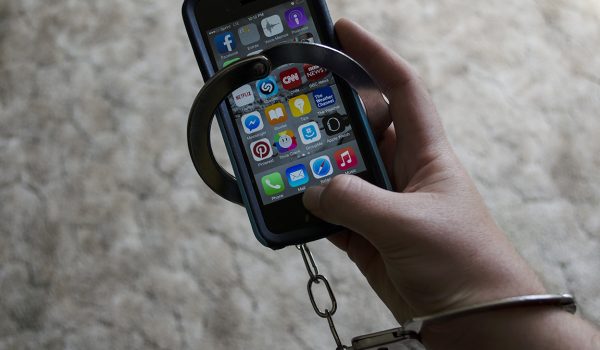Silicon Valley Insiders Reveals Their Tricks; The Inherent Addictive Quality Of Smart Phones
Rarely do magicians reveal their tricks. Even more rare is when Silicon Valley insiders tell you their secret, that technology is not inherently neutral. Its addictive.
Recently CBS released an episode on 60 minutes called “Brain Hacking.” The program discusses the modern phenomena of ‘Smart Phone Addiction.’ However CBS covers the topic from the perspective of those creating the software.
Ramsey Brown, a programming expert, discusses his company, Dopamine Labs. The company is made up of like-minded computer code gurus, who use their computer hacking expertise on the human mind.
They create apps for Health Companies and Financial Firms. They study what types of programming and code could cause the release of the feel good drug, dopamine?
Brown gives an example: Instagram sends a alert and buzzes your phone when a photo reaches 30 likes. Instead of notifying the user at each individual like, this burst notification gives the user a higher dopamine rush. This helps smart phone owners associate checking their phone with receiving a brief high feeling.
It does not stop there. Brown explains the individualized nature of these alerts. The app releases the notification at a specific moment and at a specific number of likes, personalized to each user.
Brown explains that the programming will record the user’s actions and will use that information to create an algorithm specific to each individual smart phone. All of this planning works to illicit the biggest possible reaction from the smart phone user.
Every day “Dopamine Labs” is collecting more information about their app users in order to personally customize each app and to create more accurate algorithms.
“You’re part of a controlled set of experiments that are happening in real time across you and millions of other people,” Brown of Dopamine Labs tells us.
Psychology Today gives us a window into how dopamine works. Research on rats demonstrates how dopamine is a just as much a ‘seek drug’ as it is a ‘feel good drug.’ The dopamine neurons of rats were removed, and as a result the rats lost the drive to seek for food. They could still chew and digest, but even with food right next to them the rats had no desire to eat.
Essentially, dopamine is responsible for the anticipation we feel when using our phones. Like the Instagram example, our phones provide us with a small boost in dopamine; this causes us to keep searching.
We keep scrolling on Facebook looking for another funny article or interesting post, and before we know it, we have spent the last 30 minutes on our phone.
A few years ago Time conducted an poll centered around cell phone usage, and the results are staggering. 20% of people check their phone every 10 minutes. 75% of 25-29-year-olds sleep with their phones. 33% of the people asked admitted to feeling anxious after going short periods of time without checking their mobile device.
It is simply a reality that we are addicted to our smart phones. App creators like Brown are doing their job well. It is important to stay educated on the reality of smart phone addiction. CBS’s episode does a good job of informing us and drawing our attention to this reality, a reality we often ignore.


